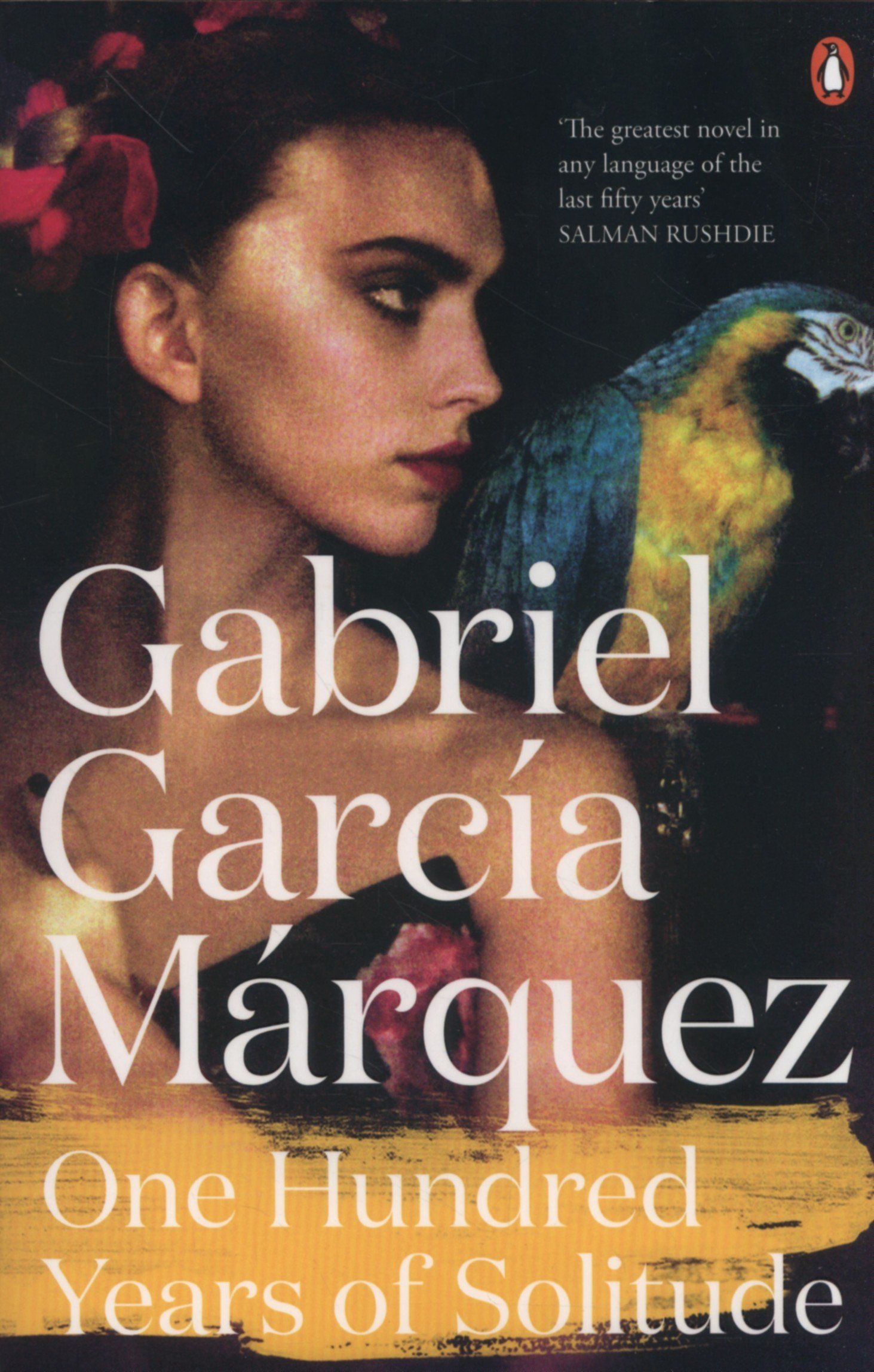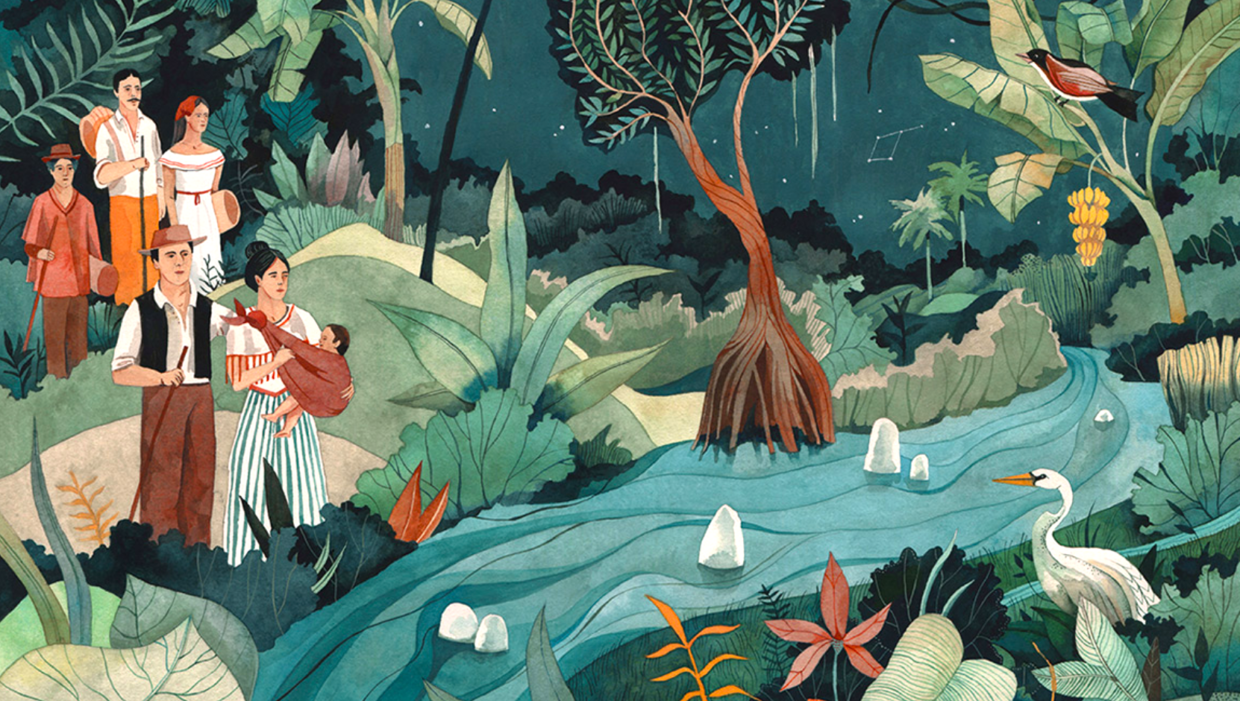I'm not sure if it was because I had heard that this was a difficult and complicated novel to read until now, but I decided to read it now or not, or if it was because I wasn't particularly interested in the fiction genre before. traditional theory... Read "Love in the Time of Cholera" by Gabriel Garcia Marquez, which is also a classic but has a much simpler plot. I was so in love with "Love in the Time of Cholera" that I thought no other novel by Mr. Marquez could compare, until the day I read "One Hundred Years of Love." "lonely" ("100 years of solitude")...
Because if "Love in the Time of Cholera" is number one, "One Hundred Years of Solitude" is number ten. And not everyone can write a massive novel in the background about the formation and destruction of a family. Latin American magical realism is fantastic. From the first pages of this captivating Latin American color, I was completely captivated. Complicated? Yes, but with the pen developing the story, it has the magic of a fairy tale that may or may not be true, while also being intense, at times deep, in the way he portrays tragedy. Mr. Marquez transforms a seemingly difficult plot into an easy-to-understand and unforgettable literary experience in the heart of the reader through the lonely play of an entire family. That's why I know it's not difficult to win a Nobel Prize for every classic, but I must dare to give the work a chance to give me the beauties it preserves inside each word, whether it succeeds or fails... Congratulations, Mr. Marquez!
The story of the entire Buendia family begins many years ago, when a pirate attacked Riohacha, forcing Ursula Iguaran's great-grandfather to flee to a remote village to settle. They developed a close relationship with José Arcadio Buendia's great-grandfather, and their great-grandson married each other, resulting in the birth of a child with a pig's tail. Fearing that their grandchild would end up like this, José Arcadio Buendia and Ursula Iguaran's parents forbade them from marrying. But, because love conquers all, they decided to marry despite the family's objections, so Ursula forbade her husband from having intercourse for fear of their child being born with a pig's tail. Wearing chastity pants every night when going to bed with my husband helped me avoid having to give birth. They had been married for many years but had no children, which caused many in the village to doubt José Arcadio Buendia's "manliness," and among those doubters was Prudencio Aguilar, who had to die for daring to provoke anger. Buendia, José Arcadio Killing Aguilar in rage did not help José Arcadio Buendia live a peaceful life; on the contrary, he was constantly tormented by his conscience, and he eventually left the village and returned with his wife and a few others. Macondo village was established after many days of difficult climbing through passes and streams.
Despite the risk of having a pig-tailed child, Ursula finally agreed to have sexual relations with her husband, and generations of the Buendia family were born over the years, but everyone had to suffer the tragic fate that God seemed to have predestined for them, from the moment their great-grandfather met and the children of the two families married each other: swaying in loneliness and nostalgia, anxiously worried that one day they will commit incest.
The characters in "One Hundred Years of Solitude" have traditionally named their children after their ancestors and ancestors, and this is the only point that allows the work to exist to some extent. To the reader, it appears a little complicated. But, in my opinion, there is no need to be concerned about this, because it is no coincidence that Monsieur Marquez is so well-known for his literary genius, what more do we need when the author is so skilled and talented in creating characters that, despite having the same name, have completely different personalities and appearances? Furthermore, it is not necessary to be overly concerned with reading the genealogical chart printed at the top of the book to grasp all of the characters (admittedly, I read the table carefully at first. There are no differences that help readers distinguish one person from another because it only has a name). Simply reading the story, immersing yourself in each word, turning each page, reading about one character after another, and readers will instantly see, instantly distinguish who is who in a forest of names. called repeatedly throughout each life, because the difference in characterization and fate of each person is the most perfect genealogy table for the book.
And as a result, I couldn't confuse José Arcadio Buendia - the ancestor of the Buendia family in Macondo - with his son, also José Arcadio - who had traveled the world; between (José) Arcadio - the fallen son of José Arcadio, a violent maniac and paranoid about his power in the war between the Royalists and the Liberals, only to die suddenly And how can I confuse Aureliano Buendia - the second son of the Macondo family's ancestors, who followed his father to study alchemy and grew up to become the faction's key colonel? Freedom in the war with the Royalists – with Aureliano José – his son, who also fancied and indulged in the idea of incest with his biological aunt; between Aureliano Segundo – the twin brother of José Arcadio Segundo, who with a debauched lifestyle, passionate about drinking and prostitutes, although married but still always flirting with his prostitute woman – and Aureliano Babilonia – Meme's unacknowledged child and her "flying yellow butterfly" lover, the child who would later commit incest with his own aunt without even realizing it until the very last minute. of the novel; between Aureliano - the last child of the family, just born was eaten by red ants, ending 7 generations with the lonely tragedy of the Buendia family - and 17 other children of Colonel Aureliano Buendia, each bear the name "Aureliano" with his mother's last name. And lastly, how could I confuse Remedios who was the budding wife of Aureliano Buendia – who died young amidst the blood and mucus that came from her pregnancy – with Remedios the Beauty, who disappeared from life in Macondo by flying into the sky while folding blankets, and with Remedios aka Meme – the unfortunate daughter of Aureliano Segundo, who was prevented from loving by her mother and died of old age at a hospital.
This is a novel of ancient loneliness, a hundred years old, about a family's tragedy of loneliness and incest. As a result, it appears that all members of the family. This tragedy affected the entire Buendia family. The first member, José Arcadio Buendia, was so engrossed in his scientific and alchemical research and discoveries that he was tormented and driven insane by that same passion, only to die of old age at the base of a chestnut tree alone. Then there's the lonely tragedy of Colonel Aureliano Buendia, who didn't know what he was fighting for, who let the war and the scenes of battlefield slaughter corrupt him, exile him to a lonely region no one understands, and then when the war was over, he returned to the four walls of the old alchemy research room, meticulously making goldfish to pass the days and months, to rub ease your loneliness. It is also the tragedy of Aureliano Hosé's loneliness in the way he indulges, cherishing the idea of having sex with his biological aunt Amaranta, and Amaranta's loneliness in her love for his adoptive sister Rebecca - her pain. The loneliness stems from Ursula's mother's lack of concern, then Amaranta's loneliness about not being able to love a single guy, staying single despite so much attention, and finally Life is the loneliness of mad nostalgia for her carefree but delightful youth. It was also Remedios Beauty's loneliness, in her crazy childishness as a 20-year-old, in the incomprehensibility of her behavior, in her lust for those who were only interested in her body but not in her soul. but couldn't give her any love, so she flew back to heaven like a fairy, like a dream that didn't come true... It was also the loneliness of José Arcadio Segundo, who was estranged from life and even invisible to enemies, who was alone in his religious studies in Rome, and in the way, he imagined and coveted her. My grandmother Amaranta represents Meme's loneliness when her mother forbade her love when she gave birth in a monastery and then died of old age in poverty...
This tragedy of a hundred years of loneliness affects not only people with the surname Buendia but also outsiders who join the family through marriage or have a love relationship with someone in the lineage. They, too, were victims of the same tragedy. Rebecca, Ursula's adopted child, huddled in the house for years after the death of her husband, José Arcadio Buendia, without being remembered until she died, befriending loneliness. as well as bitter oblivion Fernanda Del Carpio, wife of Aureliano Segundo, is lonely in this world.
A massive work that stems from an epic tendency in telling the story of an entire family's survival and destruction, with a dense network of characters, accompanied by symbolic implied images, such as the arrival of the North Americans and the Banana Company in Macondo as a symbol of American aggression and capitalism; the deception, oppression, exploitation, and killing of banana plantation workers by these forces are symbolic of the evil deeds that Amer A classic and profoundly implied work about love, patriotism, human alienation, and how many characters may not have had to endure God's torment. If they are not helpless in the face of love, if they do not separate themselves from the social community (whose first action is to separate to establish Macondo village), if they do not live selfishly, oppositely, and if they have a passionate, loving heart, they will be lonely until the end of their lives. If Gabriel Garcia Marquez portrayed his love lesson in "Love in the Time of Cholera" through a selfish lifestyle, taking revenge on life, and using love to satisfy trivial lusts expressed through forgiveness. The culture and overwhelming loneliness of the character Florentino Ariza are shown again in "One Hundred Years of Solitude," but this time it is a lesson for an entire family, not just one individual. And, while the expression is different and the message to the readers is slightly altered, the spirit that Mr. Marquez wishes to convey remains consistent throughout the two works, so that there will never be a line in real life. They endured the same hundred years of solitary torment as Buendia, so that "what is written in these parchments will not and will never be repeated again because the clans are condemned to a hundred years of her life." "I don't have another chance to be human on this planet."




